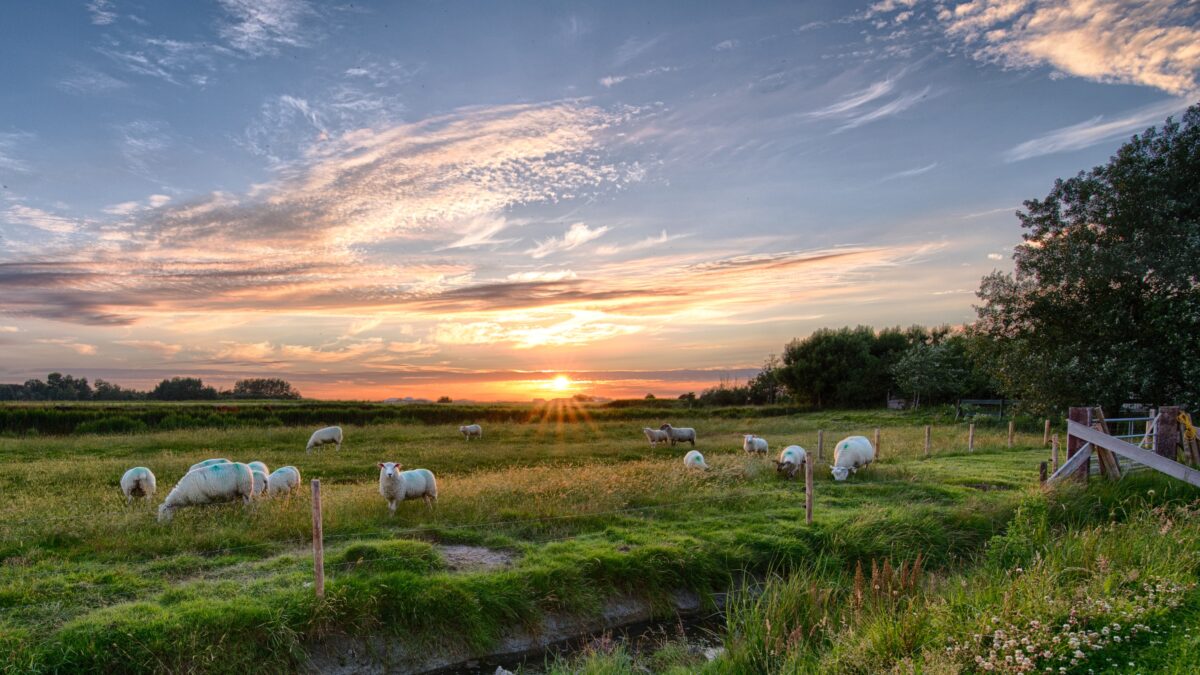This list of idioms about nature features all the elements: from water and earth to the stars and sky. English can be a wonderfully descriptive language and these nature-inspired phrases will help you make your point.
However, idioms can be hard to understand, so we have included full definitions and examples with each expression on this list.

Idioms about nature
Answer the call of nature
Most of these idioms about nature are easy to explain in a polite way. This one may not be! Saying that you need to answer the call of nature is an informal way of expressing that you have to go to the toilet.
“Sorry I’m late. I had to answer the call of nature.”
Similarly, you may hear people talk about ‘nature’s call’ or ‘when nature calls’, which both allude to the same thing.
The nature of the beast
The nature of the beast can refer to an inherent character trait in a person, or to an intrinsic aspect of a process or situation. In any case, it is generally used to talk about something negative that cannot be avoided.
“Sadly, owning your own home means paying all the bills. That’s the nature of the beast.”
Freak of nature
A freak of nature can either be a person or a thing. This expression exaggerates the point when something or someone is above average. They may be much bigger, stronger, smarter, taller or faster than normal.
“You should have seen the guy at the game. He was so powerful, he was a freak of nature.”
It could also refer to weather or a natural disaster that was worse than usual. There are some more storm and rain idioms that could be helpful here.
Let nature take its course
When you let nature takes its course you are allowing something to happen without trying to change the outcome or get involved. Sadly, in a lot of cases, it means allowing something to die naturally.
“Well, there’s nothing more the vet can do so I guess we should let nature take its course now.”
Second nature
When something is second nature to you, you find it easy to do without really thinking. It could be that you have worked hard to develop your skills in this area, or it may just be that you are naturally talented at it.
“The new computer program is now second nature to me!”
Nature versus nurture
Nature versus nurture is a hot topic. It’s the question of what makes the biggest impact on our lives and choices. Is it our genes and hereditary factors that are given to us by our parents, or the environmental variables experienced during childhood?
“It’s so interesting that two brothers can turn out so different. Nature versus nurture, I guess.”
This is a highly debated topic – what do you think?

Nature idioms
A drop in the ocean
Some of these idioms about nature are water-related, and you don’t get much more water than the amount found in the ocean.
If you were to add a single drop to this vast and deep body of water, it wouldn’t make much of a difference. And that is what the saying a drop in the ocean is referring to: an effort or an amount of something that is so small or insufficient, it is practically insignificant.
“I did everything I could to help but it really felt like a drop in the ocean.”
At sea / All at sea
Adding to the list of sea-themed idioms about nature, when you are (all) at sea, you are feeling confused or unsure of a choice. This saying is more popular in British English.
“I have no idea what to do. I’m all at sea at the moment.”
A ray of sunshine
People or things described as a ray of sunshine bring joy and happiness into your life.
“My grandson is a ray of sunshine.”
There are lots of other happiness idioms you may want to explore.
Go with the flow
Some of these idioms about nature are really inspiring. If you want a more relaxing life then you may want to take the advice given here and just go with the flow.
Taken from the way the water just flows the way the river is taking it, people who go with the flow are relaxed and calm and just fit into any given situation. They don’t try to change it.
“There’s no point getting upset about it. Just go with the flow and let’s see what happens.’
Tip of the iceberg
You may not know this, but an iceberg is much, much bigger than what you see on the surface. So the tip of the iceberg is small compared to how much you don’t see under the waterline.
This nature saying, therefore, is indicating that you are only seeing, appreciating or understanding part of a much bigger situation or problem.
“You only know the tip of the iceberg. There is so much more going on!”
If you need more ice, snow, or winter-related idioms there are plenty of chose from.
Make waves
This nature idiom could be confusing, as it has two possible definitions that mean quite different things.
On the one hand, to make waves can mean to make a great first impression. On the other hand, it can mean to cause trouble. Usually, you can tell the meaning from the context of the sentence.
“You’ve only just started. It’s not the right time to be making waves right now.”
“She’s really making waves in the company. One to watch I think.”
Beat around / about the bush
Here’s something that is quite common in young children (but also some adults). To beat about the bush is to talk and talk about something without directly coming to the point.
Most times this phrase is used in the negative, asking someone not to beat about the bush; to get to the point.
“Please don’t beat around the bush. Just tell me what happened.”
Find some other fun idioms about talking here.
A bed of roses
There are many great flower sayings in English that reflect the beauty of nature – and this is one of them.
A bed of roses refers to a situation that is pleasant and comfortable. On the other hand, something that is not a bed of roses is difficult and challenging.
“Running your own business is not always a bed of roses, but it does have its benefits.”
Can’t see the forest/wood for the trees
Like a lot of idioms about nature, this one changes depending on where it is said. British English may say ‘wood’ whereas American English may say ‘forest’.
Either way, when you can’t see the forest for the trees, you are so involved with the details of something that you can’t see the answer or solution that is clearly right in front of you.
“Wow. The answer was right there on the screen the whole time! Sometimes I can’t see the wood for the trees!”
Barking up the wrong tree
These idioms about nature take their inspiration from many places. Barking up the wrong tree is also a sports idiom. This expression is used when someone is misguided, following the wrong course of action, or not quite understanding the point. This could be due to their own beliefs, a misunderstanding, or not having all the right information to hand.
“I’m not sure you have all the information. You may be barking up the wrong tree.”
Bird’s eye view
A bird’s eye view is a view from above, viewing nature just as a bird does. You may get this kind of view after climbing a mountain, or when taking a flight.
“The lake looks even more beautiful with this bird’s eye view.”
There are many more bird-related idioms in English for you to discover.
Down-to-earth
If you are a practical, sensible, and realistic person then you may be described as down-to-earth. In fact, you could use this nature phrase to describe places as well as people.
“I like Wanda. She’s really down-to-earth.”
“I love little down-to-earth restaurants that serve simple but tasty food.”
Run/move like the wind
This wind idiom is one of the easier ones to work out. To run or move like the wind is to move with great speed and agility.
“Samir ran like the wind when he realized he would be home late.”
Make a mountain out of a molehill
People who make a mountain out of a molehill make a big deal, overreact, or fuss over something quite small and insignificant.
“Kevin, you’re making a mountain out of a molehill. Relax, it isn’t that bad.”
On the rocks
Idioms about nature can be used in many ways. This saying, in fact, has two meanings. First, as a drink idiom, it refers to an alcoholic liquor served neat over ice cubes.
The other meaning indicates that something or someone is unsteady, unsure, and going through a difficult time. For example, a marriage that is about to fail or a business that is going bust could be described as on the rocks.
“I think their business has been on the rocks for a while now.”
Reach for the moon/stars
Some of these idioms about nature are quite inspirational. When you are told to reach for the moon or stars, you are being encouraged to be ambitious and try your best; to do something that is hard and aim for your goals.
“I told her to never give up and to reach for the stars.”
And if you’re trying to think where you have heard this phrase from, it was a popular toe-tapper song by S Club 7.
Virgin territory
Something that is completely new to you, that you have no experience of, is known as virgin territory.
“Well, this new computer system is virgin territory to us all.”
In broad daylight
This may be one of the more self-explanatory nature idioms. Something that happens in broad daylight takes place during the day when it’s light and people are around. This phrase is used to emphasize the fact that something happened when it could clearly be seen, as opposed to under the cover of darkness (at night).
‘Someone stole my neighbour’s car in broad daylight. Can you believe it?!”
To describe the opposite – a time of day when it’s dark and quiet and nobody is around – you could say in the dead of night. Learn about this and other night idioms here.
Head in the clouds
Idioms about nature can be a lot of fun to imagine. Try to picture a person walking with their head in the clouds!
This expression describes someone who is daydreaming, not paying attention, or not in touch with the world around them. It can also be used to express that you think someone has unrealistic dreams and goals.
“It’s time for her to get her head out of the clouds and start to work hard.”
Under the weather
To be under the weather simply means you are feeling a little ill, sad, or low on energy. It’s one of the weather idioms you can use in everyday life.
“Sue called to say she isn’t coming to the party now as she’s feeling a little under the weather.”
Clear as mud
Hopefully, this list of idioms about nature is helping make sense of things. But when something isn’t easy to understand, you’ll hear people say it’s as clear as mud (as mud is not clear/transparent).
“Well, after that explanation it’s as clear as mud!”
Dead air
Dead air is more of a technical phrase used in the TV or radio profession when there is an unplanned period of silence during a broadcast. Perhaps a video didn’t play, or the audio system broke.
“There was some dead air last night on the news as the comminication system broke down.”
Nowadays people also use this saying in a social setting when there is an uncomfortable period of silence.
Old flame
Your former romantic partner would be described as an old flame, especially if you still have feelings for them.
“She’s rekindled a love with an old flame.”
Check out some more interesting fire idioms here.
Idioms about nature are fun ways to describe people and everyday situations. Which ones were new for you? Leave a comment with any others you can think of!



